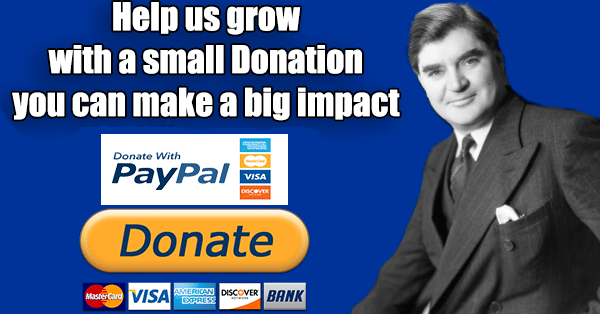Drug shortages in Europe are extensive and affect every European country.
In July alone, cancer patients were unable to access treatment in Italy, shortages of neurological drugs reached an “unprecedented scale” in Poland and the total number of unavailable drugs in Belgium reached a new record.
Pharmacists and health campaign groups have been warning for years of worsening shortages, partly linked to increased dependency on a limited number of suppliers located overseas.
“What’s new is that it used to be smaller countries with less attractive markets like Romania, Bulgaria, Eastern European countries,” said Charlotte Roffiaen, the councillor for European affairs at patient organisation France Assos Santé.
“Now it’s all countries — even the wealthiest ones.”
France this week became the latest country to call for an EU-wide solution.
The number of drugs reported as scarce in the country increased 20-fold between 2008 and 2018, according to the country’s drugs regulator — and is predicted to rise by a further 60 percent this year.
“It is true that medicines and the required raw materials are increasingly being produced outside of Europe” — Bruno Bruins, the Netherlands’ medical care minister
One idea put forward by Paris in a new action plan Monday is that the EU could set up public drug manufacturers to produce some medicines to supply all countries.
With more than 30 patient and health groups asking the European Commission to investigate why Europe is experiencing increasing shortages, the Netherlands’ Medical Care Minister Bruno Bruins has said the institution must put the issue high on its agenda for the next mandate.
The head of the Commission’s health department Anne Bucher said in a recent interview that the Commission doesn’t have any plans to take further action to address drug shortages besides what’s already being done, although she acknowledged the problem.
However, Health Commissioner Vytenis Andriukaitis last month told drugmakers that failure to guarantee continuous supply across the EU “will lead to solutions and ways to address this issue, which might not be of industry liking.”
Asian reliance
One explanation for Europe’s rising shortages is that drugs and their ingredients are increasingly manufactured by only a handful of companies, mostly located in Asia.
“It is true that medicines and the required raw materials are increasingly being produced outside of Europe. This mainly concerns countries such as China and India,” Bruins told Dutch television two weeks ago. “If we are dependent on a limited number of countries for the production of raw materials, this makes the chain of drug production vulnerable. I find that undesirable.”
The result is that any disruption to the supply chain causes serious shortages. “For years, we’ve been ringing alarm bells because the market is becoming concentrated,” said Adrian van den Hoven, the director general of Medicines for Europe, which represents generic drugmakers.
He gave the example of an explosion in a Chinese factory that made piperacillin-tazobactam, an antibiotic ingredient, in 2017. The explosion left only one other manufacturer of the ingredient worldwide.
Pharmacists have also said Brexit is already causing drug shortages, as the UK industry seeks to stockpile safe guarding UK supplies.
“The causes of shortages are understood to be multifactorial, including problems in production, global consolidation of manufacturing, unintended impacts of pricing and tendering policies, as well as problems within the supply chain,” branded drugmaker lobby EFPIA said in an emailed statement.
99 problems, 99 solutions
The multiple causes of drug shortages means there are many ideas for how to solve them.
Pharmacists want to be able to modify a patient’s prescription without having to send people back to the doctor’s office for a new script. Access campaigners want better transparency of drug prices to lower costs, and patients groups want national authorities to fine pharma companies more if they are responsible for a shortage.
“We [were] expecting the [ministry of health] to take measures to address the roots of the problems, not to monitor the problems” — Pauline Londeix, Observatoire Transparence Médicaments
One tactic EU countries including Belgium, Poland and Slovakia have tried to address shortages is limiting parallel trade, through which traders sell drugs purchased in one country in another, for a higher price.
“It’s one of the instruments we have,” Roffiaen said. “Restricting parallel trade works when the issue is parallel trade. It doesn’t help when there are manufacturing issues or marketing issues.”
Roffiaen also said she is skeptical of France’s suggestion to set up a publicly owned, European-wide drugs manufacturer, like the ones that France and other countries have to supply drugs to the military at small scale.
“It might be one of the solutions, but it’s not the ultimate solution,” she said, “because it’s very difficult to put in place. What we need is to prevent shortages.”
She said the best way to handle the problem is to better incentive companies to “come back to Europe.”
France’s action plan calls for new financial incentives to either locate or relocate production of raw materials and medicines in France and in Europe by 2022.
Pauline Londeix from the Observatoire Transparence Médicaments, a French civil society watchdog, said France’s plan lays out few concrete proposals to tackle shortages.
“We [were] expecting the [ministry of health] to take measures to address the roots of the problems, not to monitor the problems,” she said. “By postponing any constraining measures, we believe that the [ministry] has not understood the emergency of the problem.”
Roffiaen cited a survey of 1,009 people conducted by France Assos Santé before the European Parliament election in which 90 percent of people said they want more EU-wide regulation to prevent shortages.
Lieven Zwaenepoel, spokesperson for the association of Belgian pharmacists APB, said the European Commission needs to do something about the issue, focusing less on the free movement of goods and more on public health.
“If one country does so you get some attention but no real solution,” said Zwaenepoel. “If the European Union were to do so it would make more of an impression.”
Impact on patients
It is difficult to quantify the impact of drug shortages on patients in Europe because the effects are not monitored or reported, according to François Houÿez, director of treatment information and access at the European Organisation for Rare Diseases (EURORDIS). Where a drug substitution is made from the start of a course of treatment, patients are usually unaware that the medicine prescribed is not their doctor’s first choice. They often only learn of a shortage when they renew a regular prescription and find that the drug is not available.
An alternative can often be prescribed, although it may not be as effective, or it might cause side effects or need to be given at a different dose, which may lead to errors. Sometimes, however, there is no alternative available, or the alternative is ineffective. In such cases, the disease can resume.
Results There were 1666 responses to the 2018 survey, which represented a threefold increase from the 2014 survey which received 607 responses. Ninety per cent of respondents answered ‘Yes’ when asked if shortages of medicines are a current problem in delivering the best care to patients, while only 7% of respondents answered ‘No’, and 3% ’Unsure’.
Problems with shortages of antimicrobials were most commonly reported (77% of respondents reporting this as an issue in 2018 vs 57% in 2014), followed by preventative medicines (43% in 2018 vs 20% in 2014) and anaesthetics (39% in 2018 vs 27% in 2014). Fifty-nine per cent of respondents have seen care delayed as a consequence of medication shortages, with cancellations of care (31% of respondents), medication errors (25% of respondents) and suboptimal treatment for patients (25% of respondents) also being frequently reported.
Sixty-three per cent of respondents reported having had to pay a higher price to procure from alternate sources most of the time or always when there was a shortage of a medicine.
Conclusions Medicines shortages is an increasing problem across Europe and is having an adverse impact on patient care. Medicines shortages are adding to hospital pharmacists’ time pressures and have an adverse budgetary impact. More timely information about impending shortages and how long they will last is seen as necessary to help manage the problem.
This is a "Pay as You Feel" website Please help keep us Ad Free.
You can have access to all of our online work for free. However if you want to support what we do, you could make a small donation to help us keep writing. The choice is entirely yours.

























